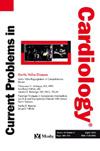The role of aspirin in cardiovascular primary prevention remains controversial. There are physiological reasons to explore its potential benefits in patients with high levels of lipoprotein(a) [Lp(a)], mainly due to its antifibrinolytic properties and interactions with platelets. The primary objective of this systematic review was to evaluate the cardiovascular benefits and bleeding risks associated with aspirin use in patients who have elevated Lp(a) levels but no history of cardiovascular disease. This systematic review was conducted following PRISMA guidelines. We performed a literature search to identify studies assessing the cardiovascular benefits and bleeding risks of aspirin use in patients with elevated Lp(a) levels (or a related genetic variant) who have no history of cardiovascular disease. Five studies (49,871 individuals) were considered for this systematic review. Three studies assessed the impact of aspirin use in relation to genetic variants associated with elevated Lp(a) levels (SNP rs379822), while the remaining two studies directly measured plasma levels of Lp(a). The endpoints evaluated varied among the studies. Overall, the findings consistently show that carriers of the apolipoprotein(a) variant or patients with Lp(a) levels > 50 mg/dL experience a reduction in cardiovascular risk with aspirin use. No significant bleeding issues were observed, although such events were reported in only two studies. This systematic review suggests that aspirin use in patients with elevated Lp(a) levels and no prior cardiovascular history may reduce cardiovascular risk. The available data on bleeding risk is insufficient.


